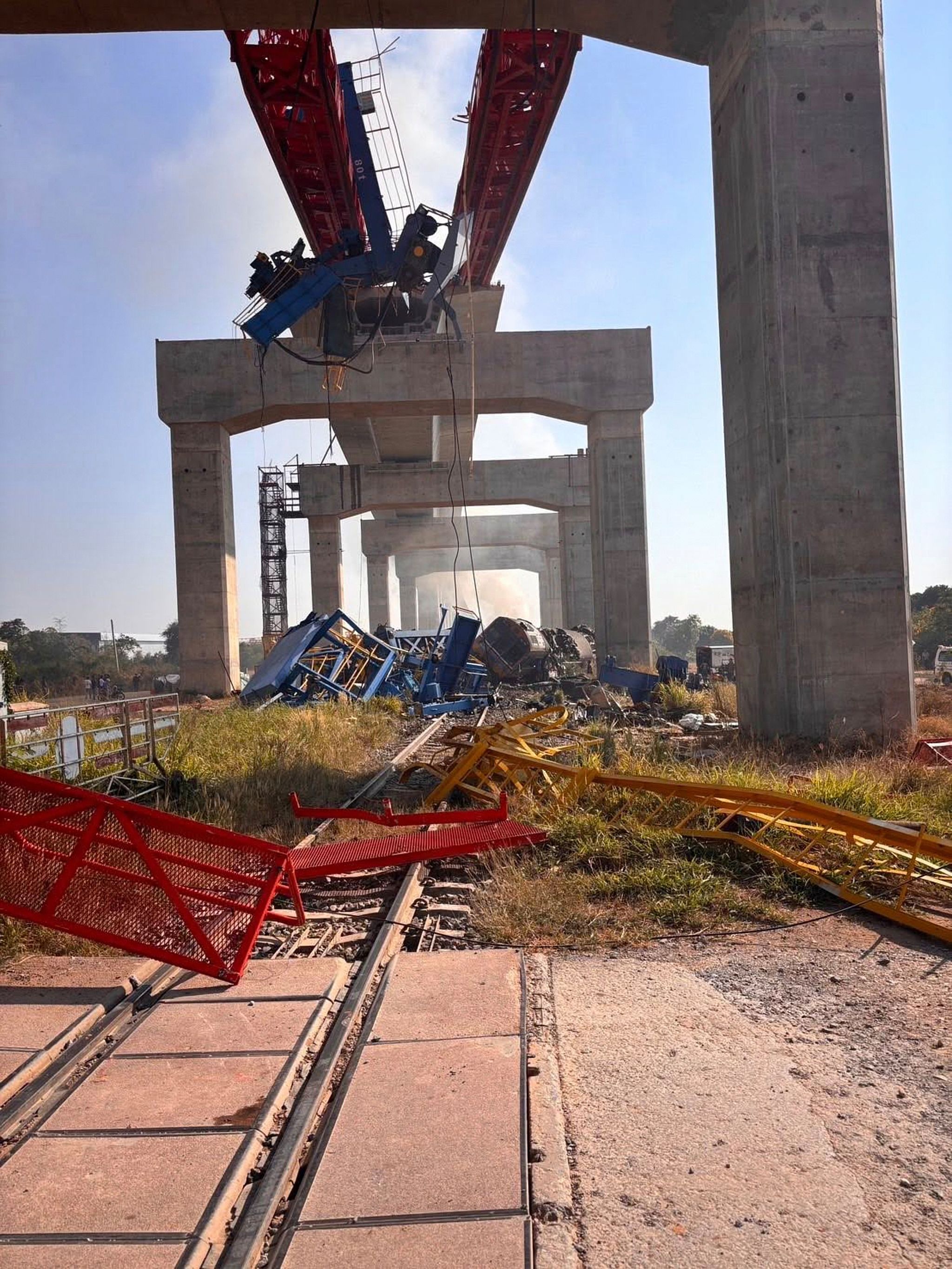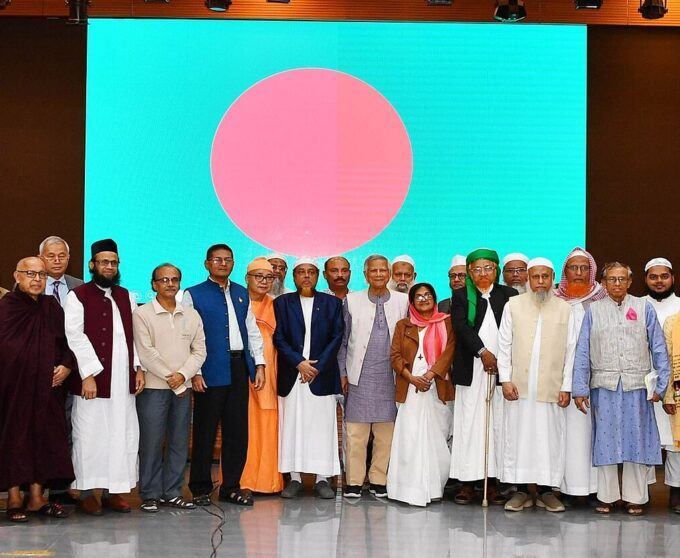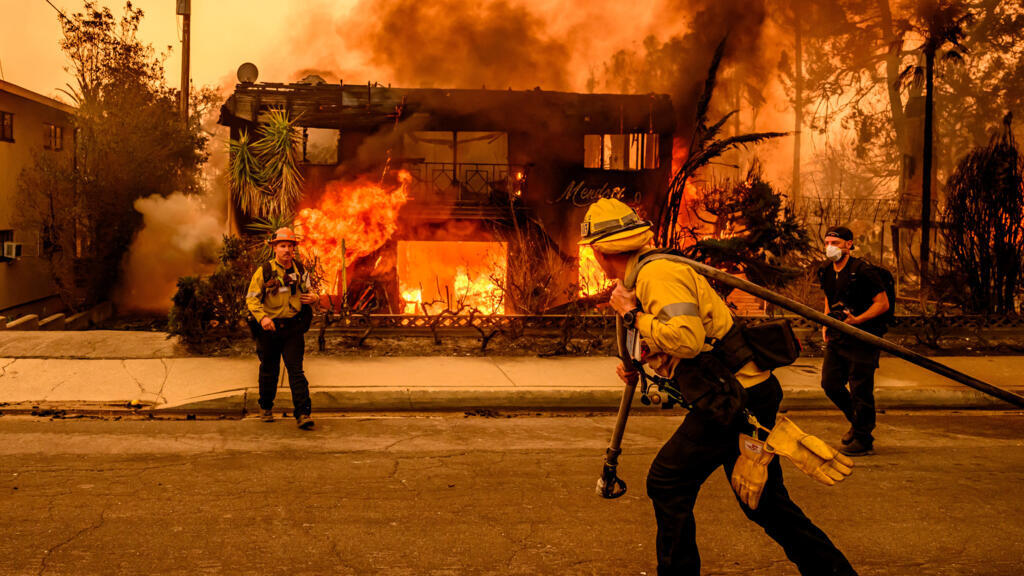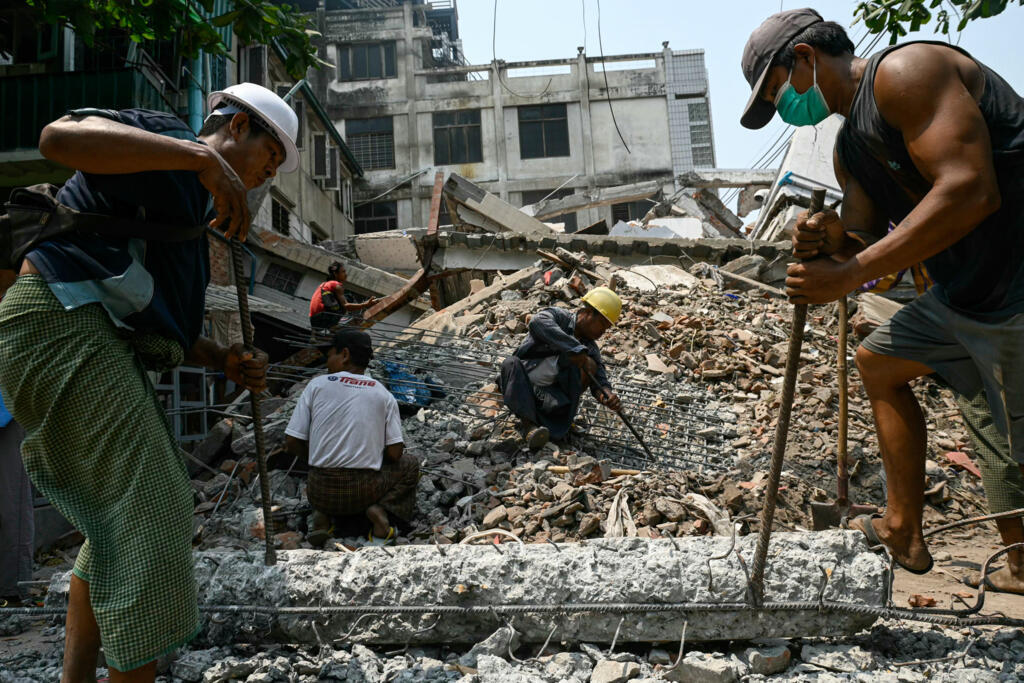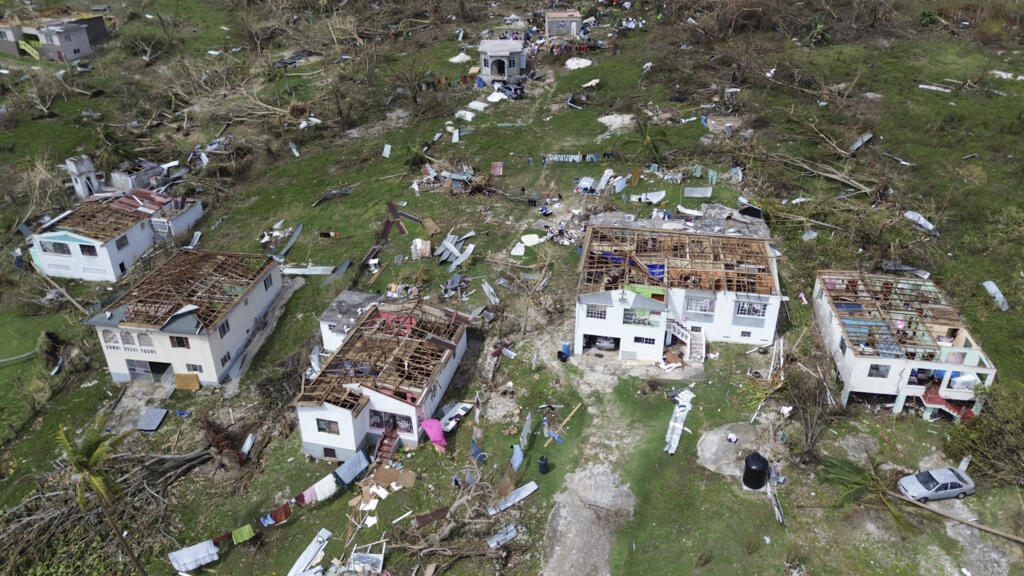NAKHON RATCHASIMA, Thailand--A construction crane crashed onto a moving passenger train in northeastern Thailand on Wednesday, triggering a derailment that killed at least 32 people and injured dozens more.
The crash occurred in Nakhon Ratchasima, some 200 kilometers (135 miles) northeast of Bangkok, on a section of a planned high-speed rail project that is intended to eventually connect China with much of Southeast Asia.
The province’s Public Health Provincial Office said there were 32 fatalities and 64 injured victims, including seven with severe injuries. There were still three passengers missing among the 171 believed to have been on board the train, it said in a statement issued as night fell.
Authorities said the crane was being used to build an elevated part of the railway when it fell as the train was traveling from the capital, Bangkok, to Ubon Ratchathani province. Thailand’s Rail Transport Department said the crane was what is called a launching gantry crane, a self-supporting structure with vertical legs that usually runs on rails or wheels for mobility, allowing it to progress along with the construction project that it straddles. Such cranes are often used to help build elevated roads.
Images published in Thai media showed plumes of white, then dark, smoke rising from the crash site, with construction equipment dangling from girders between two concrete support pillars.
Rescue workers stood on top of overturned railway carriages, some of them with gaping holes torn on their sides, video from public broadcaster ThaiPBS showed. What appeared to be sections of the crane were scattered along the track.
Sixty-two year-old Samai Teechantuek, whose house is about 100 meters (yards) from the site of the accident, told The Associated Press of the horror of witnessing the accident, and hearing “the noises screeching, and then bam, bam, bam, all the way over there.”
“When the dust settled, I saw the top of the train carriage. I heard people shouting ‘save the children first!’” she said. “A conductor pulled people out. I saw them pulling many people out. People from the shop over there also ran out to help.”
“My legs were shaking. I was standing there shaking. I didn’t dare going any closer,” she said.
Transport Minister Phiphat Ratchakitprakarn said he ordered an investigation.
In August 2024, a railway tunnel on the planned route, also in Nakhon Ratchasima, collapsed, killing three workers. Days of heavy rainfall were believed to have been a factor in the collapse.
The elevated segment that collapsed is a part of a Thai-Chinese high-speed railway project linking the capital to the northeastern province of Nong Khai, bordering Laos. The two-stage rail project has a total investment cost of more than 520 billion baht ($16.8 billion) and is associated with an ambitious plan to connect China with Southeast Asia under Beijing’s Belt and Road Initiative. The section where the accident took place had a budget of more than 179 billion baht ($5.7 billion) and according to its original plans was expected to start operating in 2027.
Anan Phonimdaeng, acting governor of the State Railway of Thailand, said the project’s contractor is Italian-Thai Development, with a Chinese company responsible for design and construction supervision. He said he ordered the contractor to suspend operations at the site until the investigation of the accident is completed.
Anan said authorities will examine the responsibilities of both parties, and the Railway Department plans to take legal action against the contractor as a first step. Damage to the train was estimated to be more than 100 million baht ($3.2 million), while construction equipment suffered limited damage, he said.
A statement posted on the company’s website expressed condolences to the victims and said the company would take responsibility for paying compensation to the families of the dead and hospitalization expenses for the injured.
The main contractor for the route’s first stage between Bangkok and Nakhon Ratchasima, Italian-Thai Development, was also the directly responsible for construction of the segment where Wednesday’s accident occurred.
The rail accident sparked outrage because the company, also known as Italthai, was also the co-lead contractor for the State Audit Building in the Thai capital Bangkok, which collapsed during construction in March during a major earthquake.
About 100 people were killed in the collapse, which was the only major structure in Thailand to suffer such serious damage. Dozens of executives were indicted in connection with the disaster but none have yet been tried.
The involvement of Chinese companies in both projects has also drawn attention, as has Italthai’s and Chinese companies’ involvement in the construction of several expressway extensions in and around Bangkok where several accidents, some fatal, had occurred.
Prime Minister Anutin Charnvirakul, who was interior minister when the State Audit Building collapsed, said that the Comptroller General’s Department and Transport Ministry are responsible for blacklisting contractors, and the laws could not be amended in the brief time he was interior minister to expedite the matter.
In Beijing, Chinese Foreign Ministry spokesperson Mao Ning said the government was aware of the reports about the accident and had expressed condolences.
“The Chinese government attaches great importance to the safety of projects and personnel, and we are also learning about the situation,” she said. “At present, it appears that the relevant section is being constructed by a Thai company, and the cause of the accident is still under investigation.”
Another crane collapses in Thailand, killing two, after 32 die previous day
Thursday’s incident, on the outskirts of the capital Bangkok, follows a crane collapse the day before that killed dozens in the country’s northeast.
Cars drive next to a collapsed crane that crushed two vehicles during construction of an elevated highway in Samut Sakhon province, Thailand, January 15, 2026 [Thai Rescue Worker Association/Handout via Reuters]
By Al Jazeera Staff and News Agencies
Published On 15 Jan 2026
A crane collapse has killed two people on the outskirts of Thailand’s capital Bangkok, one day after a falling crane in the country’s northeast killed 32.
Thursday’s accident in Samut Sakhon province involved a crane being used to construct an elevated highway that fell onto the road below, Police Colonel Sitthiporn Kasi, superintendent at the local district police station, told the Reuters news agency. Another police official from the station told Reuters that five people had also been injured in the accident.
Transport Minister Phiphat Ratchakitprakarn said the same building firm was also involved, linking Italian-Thai Development to the country’s second deadly crane collapse in two days, according to local media.
The company was contracted to build a section of a China-backed high-speed rail project where a huge crane collapsed on Wednesday in Nakhon Ratchasima province, northeast of Bangkok.
Local media reported that Thursday’s incident occurred in front of the Paris Inn Garden Hotel. Footage showed clouds of dust and rubble scattered across the site after the crane collapsed.
The Rama II Expressway, the site of the latest accident, hosts several major infrastructure projects, including tollway construction, and has seen several deadly accidents in recent years, earning it the nickname “Death Road”.
On Wednesday, the crane involved was being used to build an elevated track as part of a joint Thai-Chinese high-speed rail project, according to reports. The crane fell onto a moving train below, causing it to derail and briefly catch fire.
Advertisement
Transport Minister Ratchakitprakarn said in a statement that 195 passengers were on board the train and he had ordered a full investigation.
Al Jazeera’s Tony Cheng, reporting Wednesday from Bangkok, said the route that the train was taking is “very commonly used”, serving heavily populated regions of northeast Thailand.
“This route has been the site of a high-speed Chinese rail project, which has been under construction for quite some time now – about a decade,” he said.
Want to come back to this article? Save it for later.
Save
“It is supposed to be bringing a high-speed rail, which is on a concrete platform above the existing rail line,” he added.
Industrial and construction site accidents have long been common in Thailand.
Fatal back-to-back crane failures tied to same Thai firm: minister
Published: 15 Jan 2026 -

A recovery worker stands near the site of a construction crane collapse onto a highway in Samut Sakhon on the outskirts of Bangkok on January 15, 2026. (Photo by Chanakarn Laosarakham / AFP)
AFP
Bangkok: The collapse of a highway construction crane killed two people near Bangkok on Thursday, with a Thai minister saying the building firm was also involved in a crane failure the day before that left 32 dead.
Car dashcam footage verified by AFP showed the moment the massive crane fell on Thursday, unleashing clouds of dust as well as rubble across the area as several vehicles pulled over or reversed to avoid falling debris.
Motorcycle-taxi driver Booncherd La-orium said he no longer felt safe driving in the suburb outside Bangkok.
"I had goosebumps just thinking about how risky it is to be here. It could have happened to me," the 69-year-old told AFP.
"I still can't get over yesterday's incident, and this morning I heard another one happened again."
Transport Minister Phiphat Ratchakitprakarn linked firm Italian-Thai Development to the country's second deadly crane collapse in two days, according to local media.
The company was contracted to build a section of a China-backed high-speed rail project where another huge crane fell on Wednesday, in Nakhon Ratchasima province, derailing a passenger train below and killing 32 of nearly 200 people on board.
"Yes, it is Italian-Thai. I still do not understand what happened," Phiphat told local media on Thursday.
"We have to find out the facts, whether it was an accident or something else," he said, adding that two people were killed.
The company -- one of Thailand's biggest construction firms -- has seen several deadly accidents at its sites in recent years.
The crane that fell Thursday morning at the under-construction Rama II Expressway in Samut Sakhon province, outside Bangkok, left two people dead, local police chief Sitthiporn Kasi told AFP from the scene.

'That was close'
In other verified footage from the same vehicle as the dashcam, someone is heard saying: "I almost died... Please pull over first".
Another person replies: "That's okay now. It's not falling further. It's a crane collapse again in front of me."
"That was close," the first person says.
Rescue worker Sutthiwat Thanomsat told AFP he arrived at the scene shortly after the crane crashed down, and witnessed the aftermath of a pickup truck driver killed by the impact.
"Injured people were taken to a local hospital," he said.
The Rama II Expressway, a main artery linking the capital to Thailand's south, hosts several major infrastructure projects, including tollway construction.
Construction work has been underway for years to expand the road's capacity and reduce congestion but the project has been beset by delays and fatalities, earning it the nickname "Death Road".
Surachai Wongho, a 61-year-old retiree who drives on Rama II every day, said he is haunted by the thought that one day he could be hurt in an accident.
"It's the same incident happening over and over again in Thailand. It's time for the government to do something," he told AFP.

Condolences and compensation
The incident on Thursday followed the crane collapse in Nakhon Ratchasima, northeast of the capital Bangkok, one day earlier.
One of Thailand's deadliest rail accidents in years, a massive launching gantry crane, used by Italian-Thai in the construction of a high-speed rail project, collapsed Wednesday morning onto a passenger train below.
The health ministry said 32 people were confirmed dead, three were missing and 64 were hospitalised including seven in serious condition.
In Nakhon Ratchasima on Thursday, construction workers milled around the scene, snapping photos of the wreckage, as relatives of victims visited the site to mourn and pray in silence.

The crane was still hanging off giant concrete pillars, built to hold up the future elevated high-speed rail line -- a joint Thailand-China endeavour.
Italian-Thai expressed condolences on Wednesday, and promised to compensate the victims' families and cover medical expenses for the injured.
The nation's rail operator said it ordered Italian-Thai to halt construction until an investigation was completed.
Transport Minister Phiphat said Wednesday that all parties involved would be held accountable, including Italian-Thai and a Chinese consultancy company.
The crane operator was Thai and had fallen and died in Wednesday's accident, an Italian-Thai worker who declined to give her name told AFP.
Thailand’s acting PM calls for blacklisting of construction firm after crane collapse on train kills 32
Three people missing as rescue workers carry out clearing work after passenger train derailsThursday 15 January 2026
THE INDEPENDENT
At least 22 killed as construction crane collapses onto moving passenger train in Thailand
Thailand’s acting prime minister has called for tougher laws to blacklist the construction company involved in the deadly accident that led to a train crash killing 32 people.
Anutin Charnvirakul visited Nakhon Ratchasima province, northeast of Bangkok on Wednesday evening after a crane involved in the construction work plunged onto a moving train.
According to the latest update from Thailand’s public health office, as many as 32 people were dead and 64 injured, including seven who were critical.
Three passengers remain missing among the total 171 people who boarded the train.
The incident has sparked outrage after it emerged that the company Italian-Thai Development, which was responsible for the construction stretch that collapsed, was also the co-lead contractor in a Bangkok high-rise building that collapsed in March 2025 during an earthquake.
About 100 people were killed after the under-construction State Audit Building collapsed after a 7.7 magnitude earthquake epicentred in Myanmar struck. It was the only major structure in Thailand to suffer the damage.
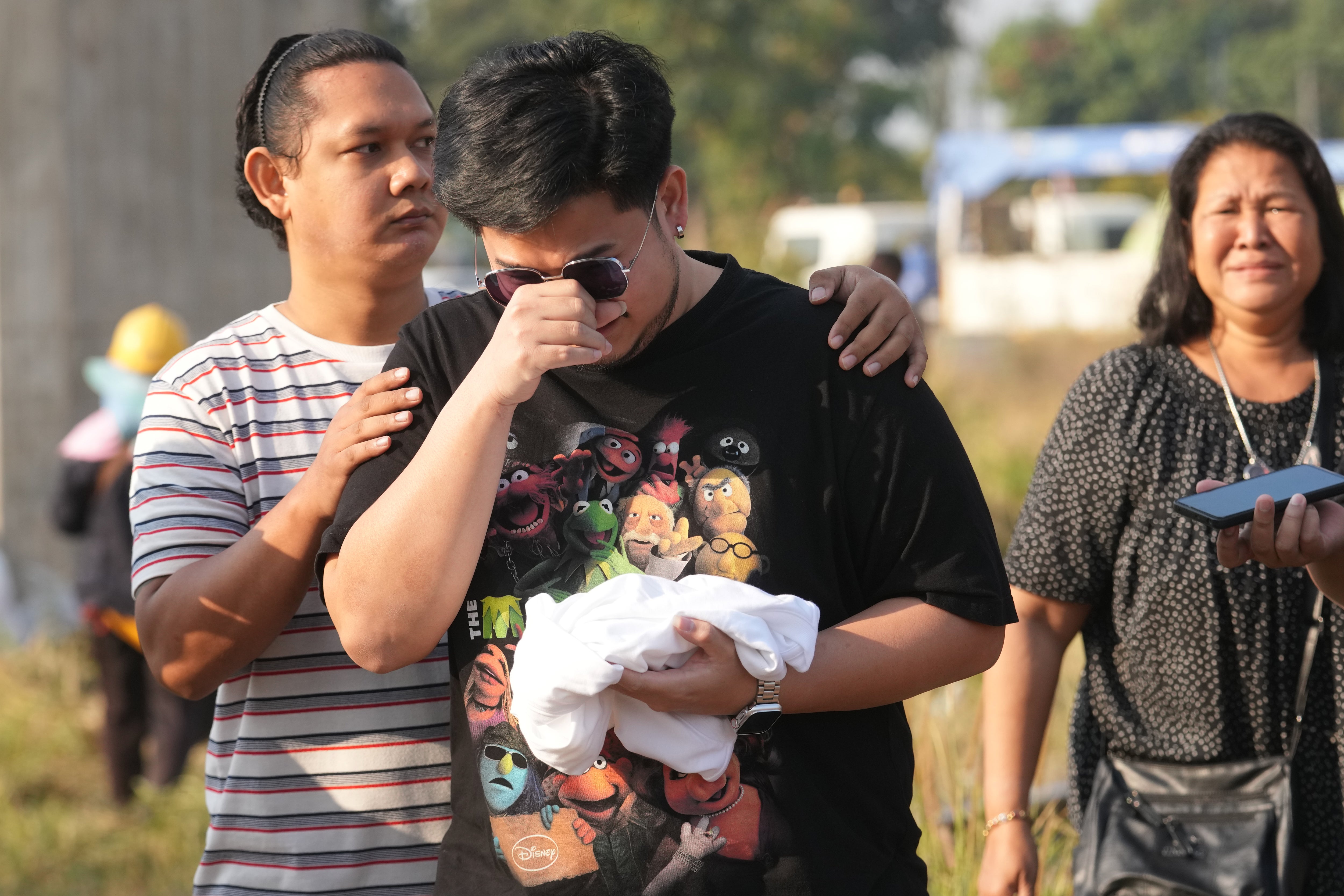
open image in galleryRelatives of the victims react near the site where a construction crane fell into a passenger train on Wednesday, in Nakhon Ratchasima province (AP)
Mr Anutin, who boarded a helicopter to visit the site of the disaster after cancelling his campaign rally, said it was “clearly the fault of the construction company” as he offered sympathies to the families of the victims.
“It is time to change the law to blacklist construction companies that are repeatedly responsible for accidents,” he said.
The prime minister questioned why the contractor had not been barred from state projects earlier, noting a pattern of repeated incidents involving the same companies. He said accidents on this scale were not isolated.
He also fumed over the proposed compensation of 40,000 baht (£950 approx), calling it “inadequate”. He said the compensation should be in millions of baht per family as he questioned whether the governor of the State Railway of Thailand should resign, according to Thai Examiner.
Mr Anutin was picked by his party to stand as its candidate for prime minister in a general election in early February, as he bids to benefit from a wave of nationalism arising from an ongoing border conflict with Cambodia. Less than 100 days after he was elected premier, Mr Anutin dissolved parliament earlier this month when his minority government faced the threat of a no-confidence vote.
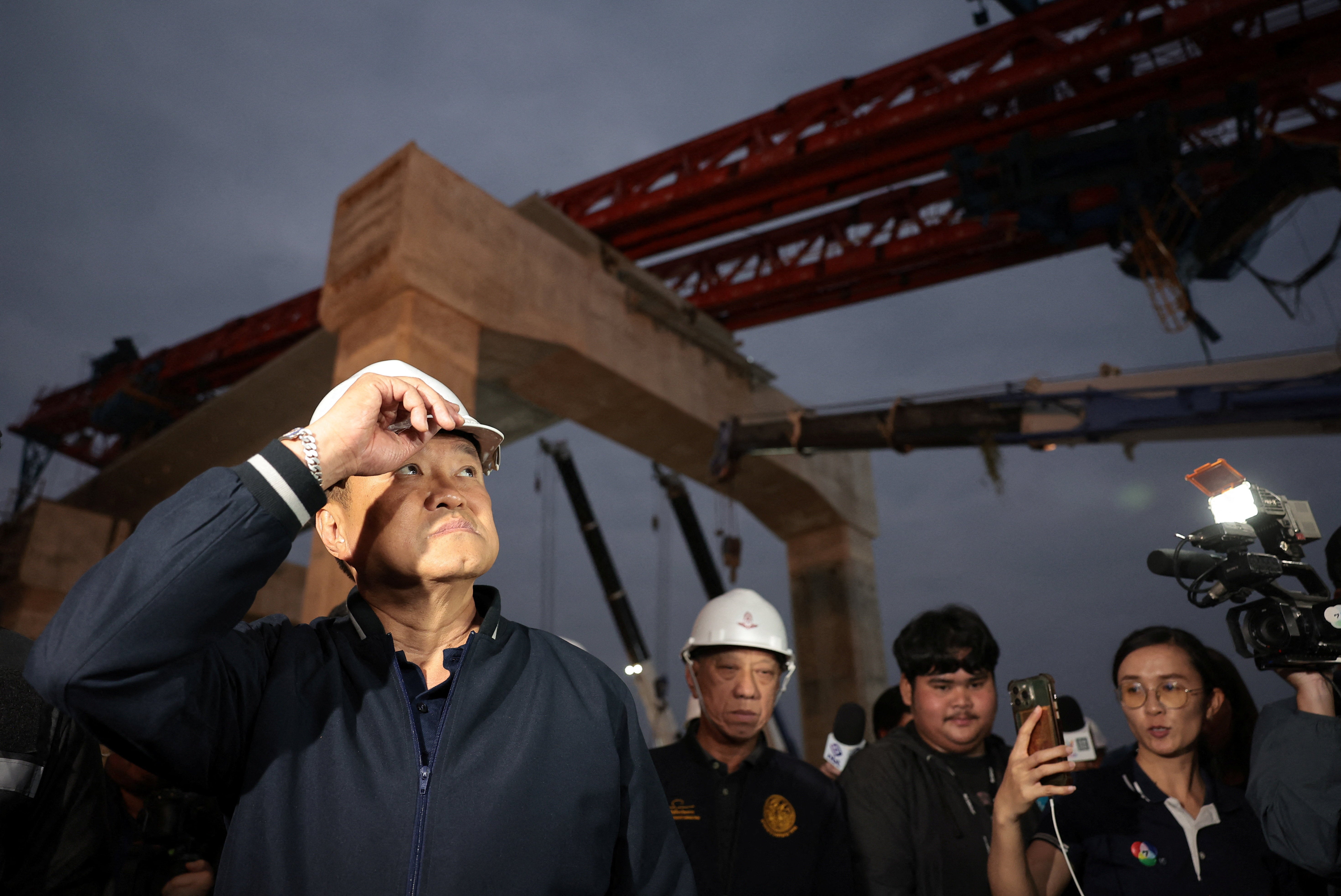
open image in galleryThailand's caretaker Prime Minister Anutin Charnvirakul, Bhumjaithai Party leader and prime ministerial candidate, visits the site where a train was derailed when a construction crane collapsed and fell onto its carriages, causing several casualties, in Sikhio district (REUTERS)
The crash occurred on part of a planned high-speed rail project that will eventually connect China with much of Southeast Asia.
The project's contractor is Italian-Thai Development, with a Chinese company responsible for design and construction supervision, said Anan Phonimdaeng, acting governor of the State Railway of Thailand.
He said authorities will examine the responsibilities of both parties, and the Railway Department plans to take legal action against the contractor as a first step.
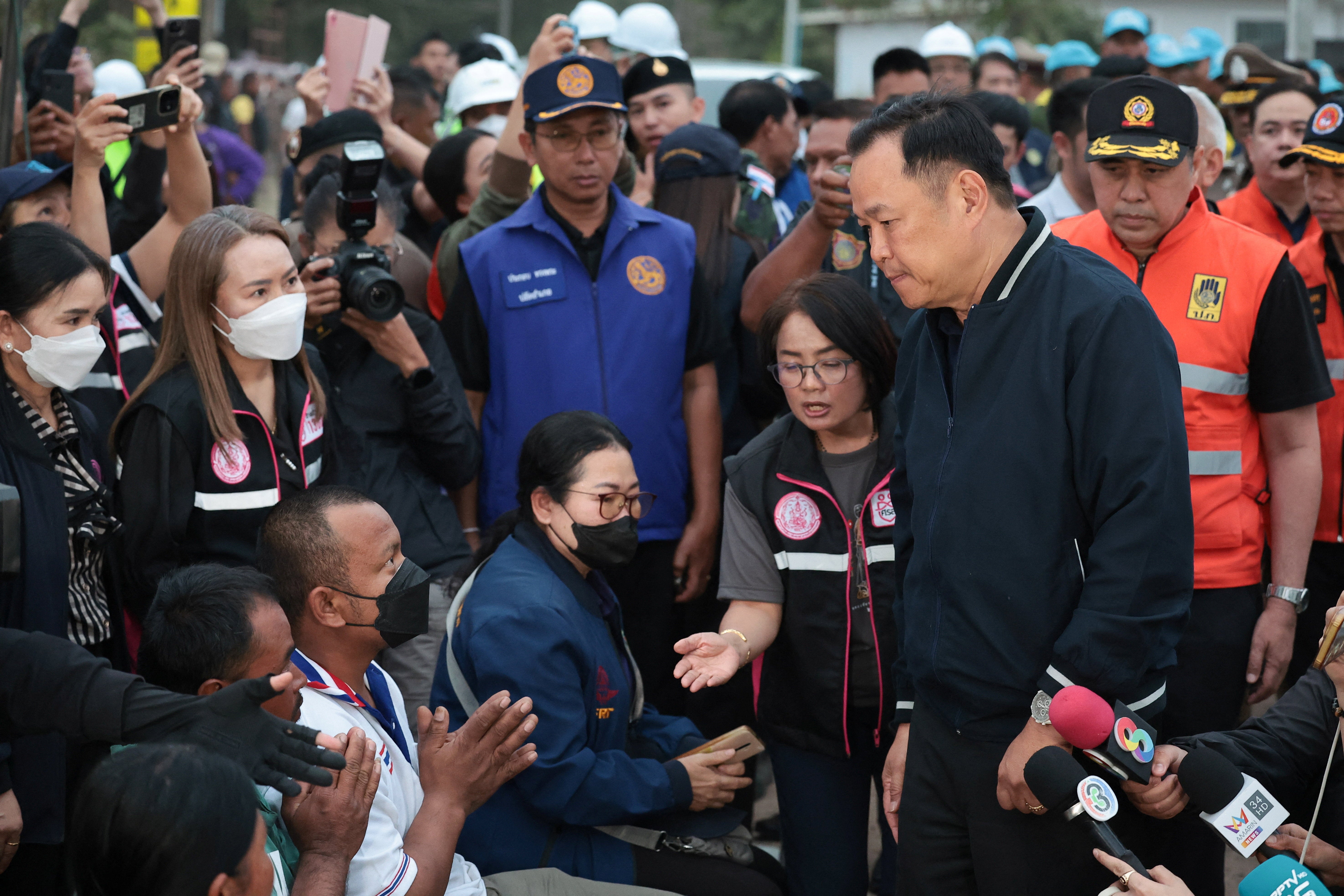
open image in galleryThailand's caretaker Prime Minister Anutin Charnvirakul, Bhumjaithai Party leader and prime ministerial candidate, visits the site (REUTERS)
The Italian-Thai Development PCL said it would take “full responsibility” of the accident and “provide full compensation and medical care” to the families of victims and the injured.
The Chinese foreign ministry said it would investigate the incident but added, “at present, it appears that the relevant section is being constructed by Thai companies, and the cause of the accident is still under investigation”.
A new construction accident on a road near Bangkok was reported on Thursday, just 24 hours after the construction crane accident.
There was no immediate official confirmation of deaths in Thursday’s accident, but the Facebook page of Fire & Rescue Thailand, which covers the activities of volunteer firefighters and rescue workers, said at least one person was killed.

